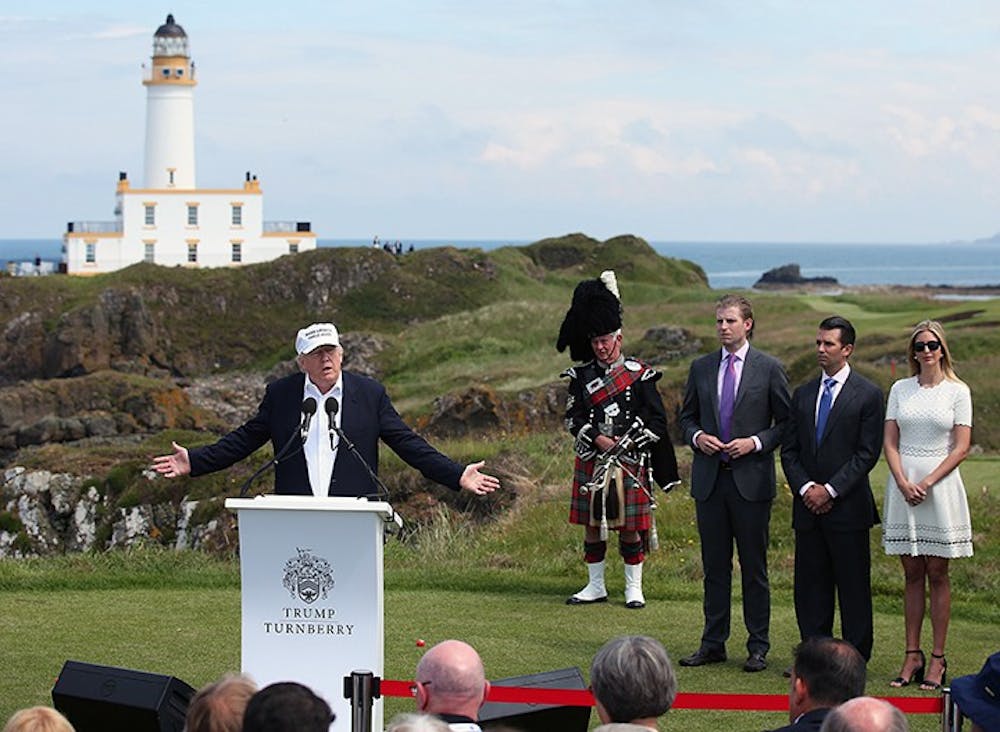If you’ve followed world news in the last week or economic news in the last few months, you’ve heard at least a little bit about the UK voting to leave the EU, a decision commonly referred to as the Brexit. Feelings on the other side of the pond are running high, and among news outlets on this side of the pond, there seems to be a sort of consensus that the British vote indicates the advent of President Trump in November.
However, the steadily widening disaster area that is Donald Trump is different from the little-understood, binary-option referendum that the British used to voice their opinions last Thursday.
This is not to say that there is no danger. Certainly the rise of far-right populism in Europe (see: the UK Independence Party, Austria’s Freedom Party, Greece’s Golden Dawn, Hungary’s Jobbik Party, etc.) doesn’t bode well for the continent. Or the world. It is also not to say that it is not a warning that Trump could happen. As John Oliver put it, the will of the people can take you by surprise if you don’t pay enough attention, and there are “no f------ do-overs.”
But the Brexit isn’t an automatic in for Trump on election day. First, although both sweep in on the tide of anti-immigration nationalism and anti-establishment sentiment, the Brexit is an issue and Trump is a man. We aren’t voting on one question when we go to the polls in November; we’re voting on many, many questions, wrapped into an almost universally objectionable personality.
Looking at Donald Trump, I can see that over the years, we’ve agreed on some issues (admittedly less so recently, as he has catered to GOP primary voters) but the fact that he has, in the past, supported and opposed things I support and oppose now is outweighed by my judgment of his current unfitness to be president based on his racist, sexist and frankly wrong and idiotic statements throughout the course of the race.
The Brexit as an issue was and is often confusing, but in the end, it was one issue to consider from all sides, whereas the presidential race is two people, who not only represent positions on many issues — some of which you may agree with and some of which you may not — but who also have personalities, temperaments and skill sets that are important to consider when we’re electing our next chief diplomat.
Another thing to consider when trying not to panic about the idea of a Trump presidency is the Brexit itself. Trump, whose poll numbers in general have fallen recently, has attached his name and his movement firmly to the Brexit — and if the UK’s economy continues to decline and their national situation worsens (Scotland leaves for the EU, Ireland reunites and heads back to the EU, the Bregret gets too strong, there is trade/immigration backlash from the EU, etc.), American voters may rightfully take that as a warning about what could happen to our own country if we go the same way as the UK. In other words, if the British parting ways with the EU ends up being bad for the UK, it may also be bad for Trump in the general.
So yes, of course we should take the Brexit as a dire warning about the consequences of not staying on top of the presidential election. It’s a warning that the vote might not go like we think it will. But it’s not even close to ensuring or even indicating that a Trump presidency is in our future.
Don’t get complacent. Primary #NeverTrump voters can tell you about the dangers of not taking The Donald seriously from the beginning. But it’s not time to lose hope yet, either.

